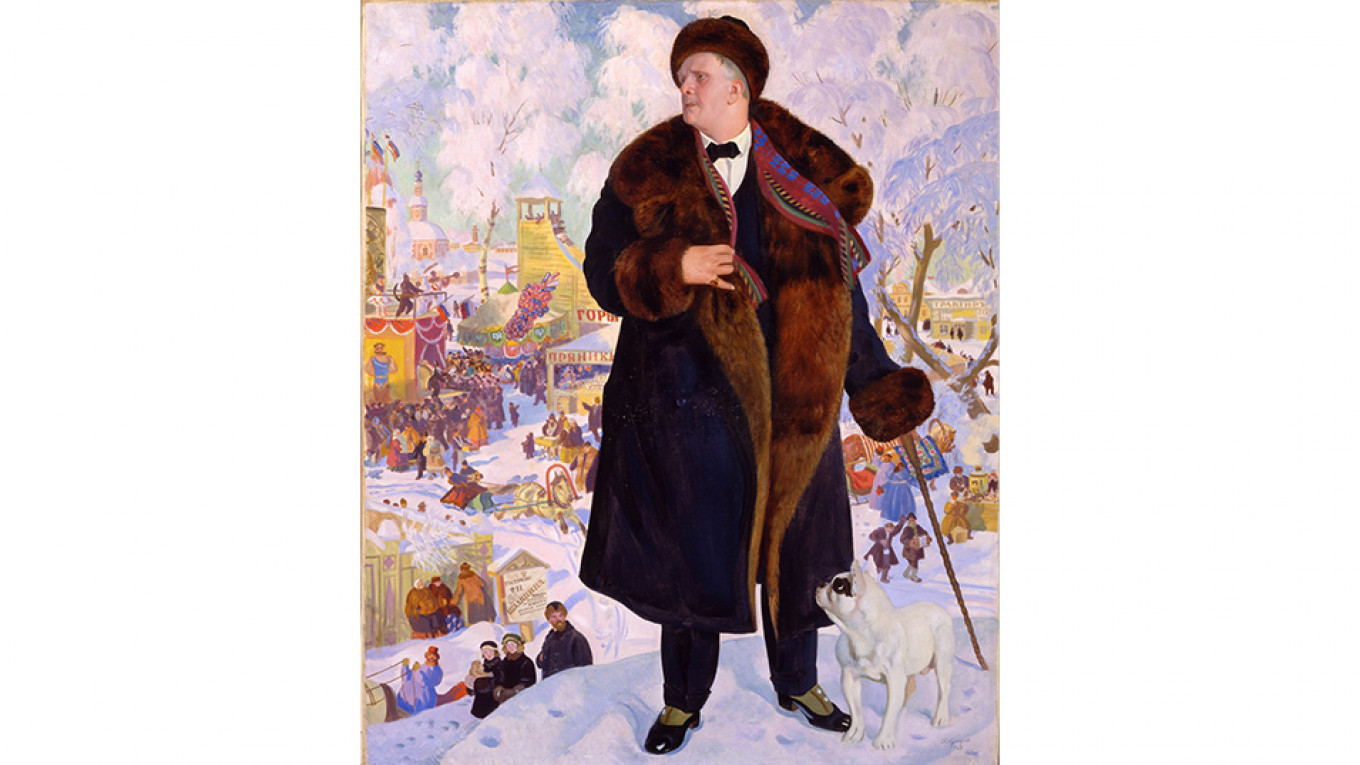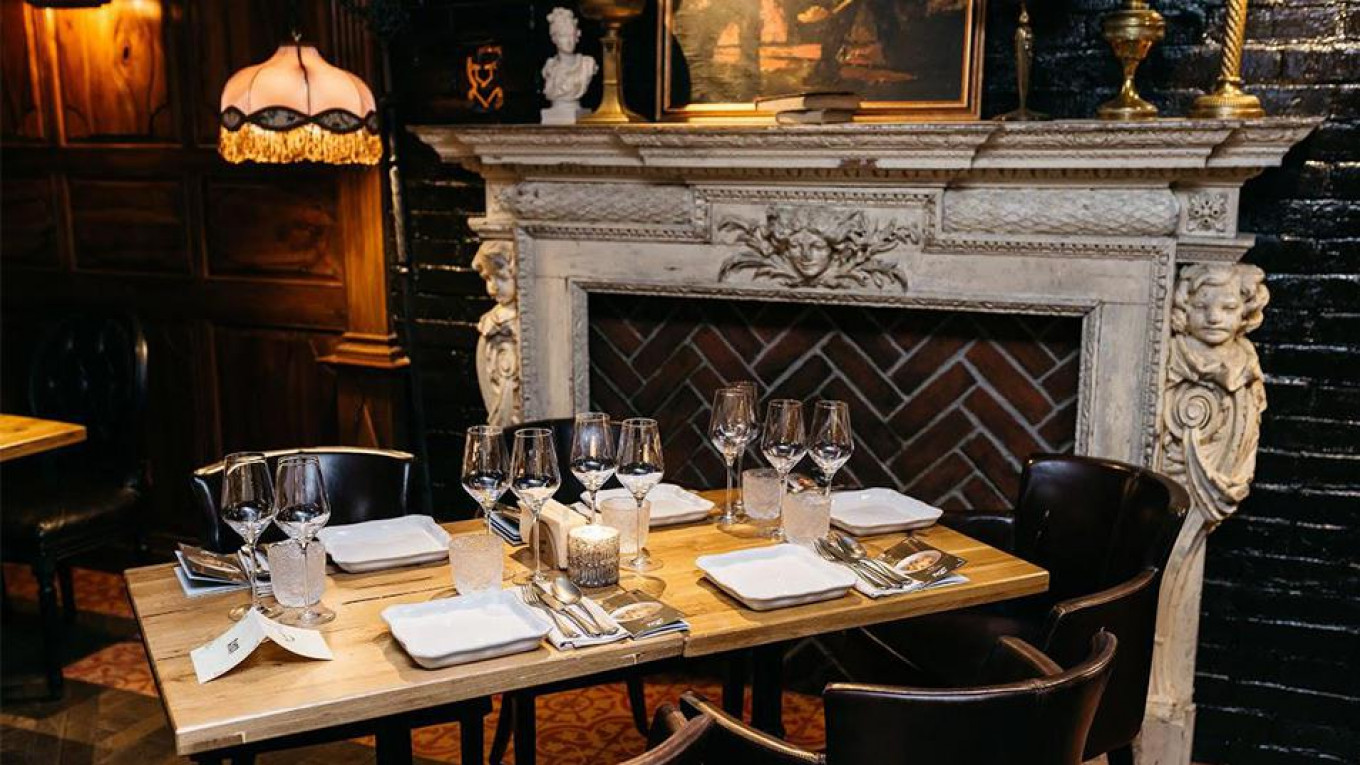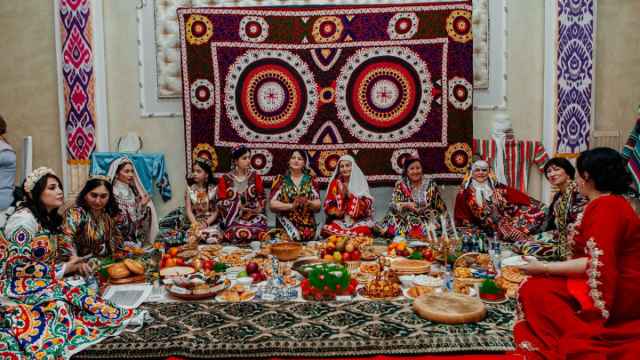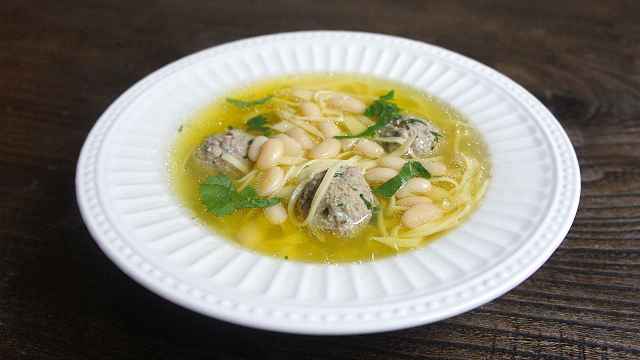Fyodor Chaliapin and His Moscow House
When you enter the former house of the great opera singer Fyodor Chaliapin, you hand your ticket to the attending babushka, who will tell you to start viewing the exhibition at a display of the singer’s suitcases. The leather is a little faded, and there are a few pieces of tape holding the seams together, but they are otherwise in good shape — as if Chaliapin could grab one and set off for a concert in Paris or New York. As the leading opera bass of the early 20th century, Chaliapin was in constant demand in Europe and North America, and the artist traveled constantly to perform.
But these suitcases also seem ready for a different journey. In 1922, five years after the Bolsheviks took power, Chaliapin would leave Russia and live the rest of his life in exile. By the time that happened, he occupied just a corner of his former house, a room he called the “pigeonhole.” The Soviet authorities had turned his home into a communal apartment.
The notion that he would have to leave his homeland forever did not immediately occur to Chaliapin. After the 1917 Revolution, he tried to continue his life as before. He kept going to rehearsals and performances at the Mariinsky and Bolshoi theaters, and did his best to keep up the standards he was used to under the Imperial regime, becoming indignant at any incursion into his artistic practice. When the Soviet authorities in Petrograd attempted to seize costumes and decorations from the Mariinsky to distribute to provincial theaters, Chaliapin wouldn’t hear of it. He got on the next train to Moscow and brought the matter up with Lenin himself, who assured Chaliapin that he would use his influence to keep the costumes in their rightful place. It worked, at least in the short term. But the realities of Soviet life slowly became more and more difficult, and Chaliapin could only call on so many favors from the leader of the communist state.
Chaliapin’s Moscow house museum is preserved in its pre-Revolutionary incarnation. The rooms are decorated in a style one might assume would have been typical for a wealthy cultural figure in the years before the revolution (his wife and children are relegated to just one room). Even the glass panels, with biographical information about the singer in both Russian and English, make scant mention of life here after 1917. The museum, like Chaliapin himself, tries to keep the Soviets out. In his autobiography, “Pages From My Life,” Chaliapin complains of constant visits from communist party members demanding to be entertained. These “flies” — as he calls them — conducted searches and at one point seized bottles of wine and his revolver. The “pigeonhole” he lived in after the revolution is the only place in the house that bears witness to these years. The low-ceiling room has the oppressive feel of a prison cell. A lone icon of Christ hangs in the corner.
For someone coming from an obscure family to become one of the most respected figures in Russia, such abasement was difficult to bear. Chaliapin was of peasant stock, from a village near Kazan, and through hard work and nearly unfathomable natural talent he reached the height of success and wealth. His tastes are on display here. On the walls you will find paintings from his artist friends Konstantin Korovin, Alexandre Benois, and Viktor Vasnetsov, dishes from Mikhail Vrubel and Alexander Golovin, the finest European furniture and hordes of knick-knacks engraved with the artist’s name. He wasn’t just in the bourgeoisie; his bass filled its very center.

Dinner With Chaliapin
At the Matryoshka restaurant on the Shevchenko embankment, the same atmosphere reigns, and the spirit of the 1910’s is still in full swing. A giant wrought-iron staircase flanked by potted palm trees leads you past servers in Russian shirts to the lower level of the restaurant. Old photographs and vintage advertisements adorn the walls under period lighting fixtures. Here chef Vlad Piskunov is offering a menu dedicated to Chaliapin through March 31.The dishes are taken from a unique document. Chaliapin had a natural taste for fine foods and wines, and for his personal chef he hired a cook, Nikolai Khvostov, from one of St. Petersburg’s best restaurants, who worked for him for eight years. During this time, the cook kept a notebook where he diligently collected the singer’s favorite dishes. Thanks to Khvostov, we know everything about Chaliapin’s personal taste in food, and the notebook, containing more than a thousand recipes, is an invaluable document which broadens our understanding of the singer — and makes a great cookbook.With a little adaptation for modern tastes, Piskunov pulled out some fabulous and unusual dishes from Khvostov’s dusty notebook. Each is paired with a different wine. The sterlet fish with farro and burbot liver was a favorite, especially with a glass of White Burgundy. Another must-try was the Boris Godunov soup. Rich with quail, partridge, and mushrooms it paired perfectly with a shot of vodka. The only dish from the menu that might remain in the pages of history was the duck with fried quince. It, however, is accompanied by a worthy red Bordeaux.
Flight to Freedom
By 1921, such a dinner would have been impossible for Chaliapin. That spring, an acquaintance visited the singer with a package and a smile on his face. When Chaliapin unwrapped the paper, he found a few rounds of sausage and a couple kilos of sugar. The acquaintance wanted him to sing a concert in Pskov, near the Estonian border. As valuable as food was the chance to get away from Petrograd and Moscow. He wrote that the trip would give him the “illusion of freedom,” if only temporarily.
In Pskov after the concert, the acquaintance wanted to know if Chaliapin would perform in Tallinn, which was the capital of independent Estonia at the time. When Chaliapin arrived, he saw true freedom. He had forgotten what life was like outside the Soviet Union. When he and his violinist entered the first station across the border where bread was freely sold and not rationed, the musician proceeded to embarrass Chaliapin by gulping down as much bread as he could eat. Chaliapin, out of the fishbowl of the Soviet Union, decided then that would leave at the soonest opportunity. The next year he packed his suitcases and left Russia for the last time.
Matryoshka. 2/1 Kutuzovsky Prospekt, Bldg. 6. Metro Kievskaya. matryoshka-rest.ru. +7 (495) 241 6772
Chaliapin House Museum. 25 Novinsky Bulvar. Metro Barrikadnaya. shalyapin-museum.org. +7 (495) 605 6236
A Message from The Moscow Times:
Dear readers,
We are facing unprecedented challenges. Russia's Prosecutor General's Office has designated The Moscow Times as an "undesirable" organization, criminalizing our work and putting our staff at risk of prosecution. This follows our earlier unjust labeling as a "foreign agent."
These actions are direct attempts to silence independent journalism in Russia. The authorities claim our work "discredits the decisions of the Russian leadership." We see things differently: we strive to provide accurate, unbiased reporting on Russia.
We, the journalists of The Moscow Times, refuse to be silenced. But to continue our work, we need your help.
Your support, no matter how small, makes a world of difference. If you can, please support us monthly starting from just $2. It's quick to set up, and every contribution makes a significant impact.
By supporting The Moscow Times, you're defending open, independent journalism in the face of repression. Thank you for standing with us.
Remind me later.






